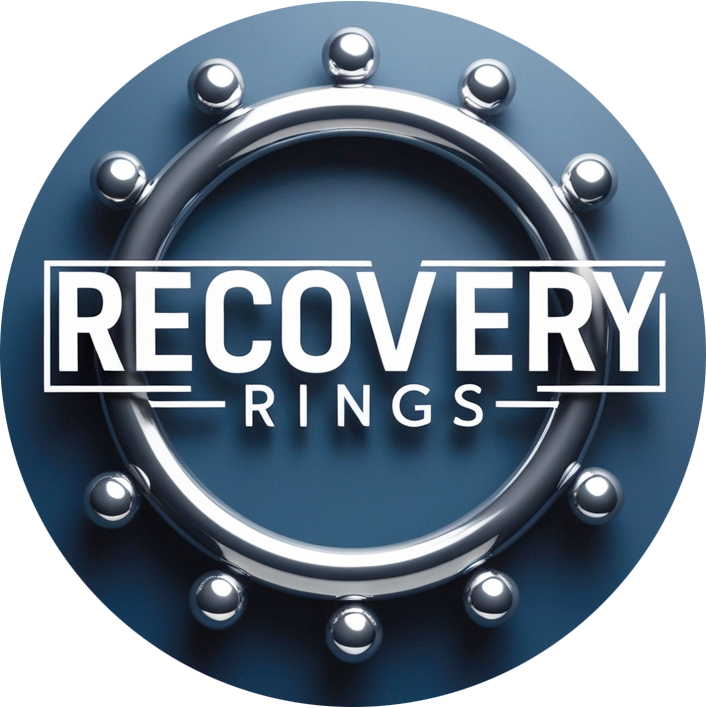Recovery Rings: A Decentralized Approach to Addiction Recovery Guided by Natural Law
Addiction is a deeply personal and complex challenge, one that touches every part of an individual’s life—physical, emotional, mental, and social. In recognizing the unique ways addiction affects different people, Recovery Rings was created as a decentralized, peer-driven recovery network. Unlike traditional top-down models, Recovery Rings embraces a diverse, natural approach to healing, rooted in the belief that different ethnic groups face different challenges in addiction and that they are best served by supporting each other within their own communities.
Race-Based Peer Support
Addiction manifests differently across racial and ethnic groups due to a variety of genetic, cultural, and societal factors. For example, alcohol dependency is prevalent in both White and Native American communities, though the underlying causes and cultural responses differ significantly. Meanwhile, African Americans may face addiction trends related to other substances, and Pacific Islanders may encounter different patterns of addictive behavior. By acknowledging these differences, Recovery Rings offers a more personalized, culturally sensitive pathway to healing.
The core philosophy of Recovery Rings is that African Americans should support African Americans, Pacific Islanders should support Pacific Islanders, and so forth. This peer-based model ensures that those providing support have firsthand knowledge of the challenges, biases, and cultural forces that affect their communities. It also allows the solutions and strategies for recovery to be tailored more effectively to each group.
Beyond the Defective Character Model
One of the most widespread models for addiction recovery, the 12-Step approach, emphasizes that addiction stems from a defective character that must be reformed. While this has worked for many people, Recovery Rings believes that it doesn’t always capture the whole picture. People aren’t, on average, born with inherently defective characters. Rather, it is in the grip of addiction that one’s character becomes flawed and eroded by the destructive behaviors and thought patterns that addiction fosters. As individuals recover from their addictions, they naturally rebuild their character, restoring their innate potential and sense of self.
This perspective removes the stigma often attached to addiction and allows people to focus on healing the root causes of their addiction rather than internalizing feelings of shame and guilt. By addressing addiction as a condition that warps character, rather than a sign of an inherently broken individual, Recovery Rings gives participants a more empowering path toward recovery.
Natural Law as a Guiding Principle
At the heart of Recovery Rings is the concept of natural law—a philosophy that asserts certain rights and moral values are inherent in human nature and can be understood universally through human reason. Recovery Rings draws on the idea that the natural state of humanity is one of health, balance, and interconnectedness. Addiction is seen as a disruption of this natural state, a deviation from the path that human beings are meant to walk. By restoring balance in our lives, we return to this inherent state of well-being.
Natural law provides a foundation that transcends cultural, racial, and ethnic differences, reminding us that, although addiction affects people in different ways, recovery is a universal journey toward reclaiming our natural potential. By guiding participants back to a life in line with natural law—whether that’s through mindfulness, peer support, or addressing the underlying societal pressures that contribute to addiction—Recovery Rings helps individuals rediscover their place in the world and in their communities.
Decentralized, Peer-Led Recovery
Recovery Rings is not a rigid, hierarchical system, but a decentralized peer support network. It operates on the principle that people within their own communities have the greatest insight into how best to support each other through recovery. Volunteers and thought leaders from each ethnic group lead online group sessions, fostering a sense of community and shared understanding that is essential to the healing process.
One of the standout features of Recovery Rings is its focus on around-the-clock availability. The goal is to have Recovery Rings talks available 24/7, so participants can log in at any time to discuss recovery strategies, mental health, and emotional support. These sessions can be attended anonymously, allowing individuals to engage in open, honest dialogue without fear of judgment or stigma.
A Holistic Path to Healing
Recovery Rings incorporates a wide range of solutions tailored to each ethnic group and each type of addiction, from alcohol and opiates to behavioral addictions like gambling. The goal is to offer a comprehensive, adaptable framework where individuals can find what works best for them—whether that’s traditional therapy, modern techniques, or more community-based approaches like the 12-Step program. Each pathway is designed to address the specific challenges faced by different ethnic groups, recognizing that what works for one group may not work for another.
Conclusion
Recovery Rings is a revolutionary model for addiction recovery. It seeks to break free from the one-size-fits-all approach and offer solutions that are deeply personalized, culturally informed, and guided by natural law. Through its decentralized, peer-driven network, Recovery Rings empowers individuals to take control of their recovery, surrounded by people who truly understand their struggles. By embracing the idea that recovery is a return to our natural state of balance and wholeness, Recovery Rings is creating a new way forward in the fight against addiction.

